50 Proven SEO Tactics for Real Estate Agents – SEO – Search Engine Optimization or maybe you’ve heard of SEM, which stands for Search Engine Marketing, are essentially the same thing. It’s setting up your online presence, be it your website, blog or social media presence, for the best possible return on investment, time and energy.
Simply publishing a website is not going to get you the leads and traffic you want. As with anything, you have to take the time to nurture it, work it, hone it, and perfect it to really get it to work for you. Once you get that snowball working, but once it does, it can be quite the machine.
While there’s no ONE way to do SEO or ONE tactic that will work, we can implement a few of them to really start making an impact. I have reached out to 50 real estate professionals for their take on what works and how to implement a plan.
50 Proven SEO Tactics for Real Estate Agents and How to Implement Tips and Tricks
1. Get the right website.
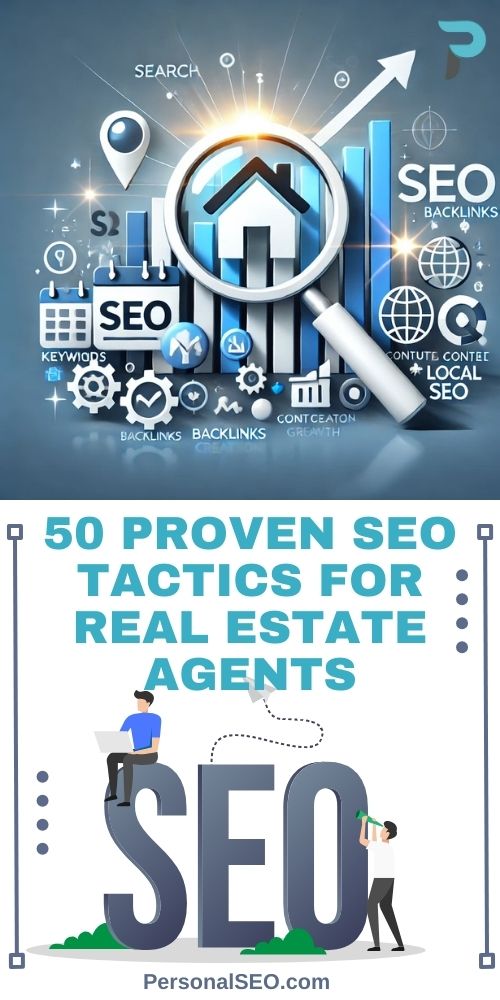
Not all websites perform. Some are simply an online calling card; some are just there because your brokerage gave you one. None of these will likely rank with the right platform. However, I have noticed that almost ALL website providers promise great SEO. That’s simply not true. Platforms that do well with templated websites include Real Geeks, Sierra, and WordPress (which can be a lot of the other ones out there.)
Custom websites can work but can be very expensive. One tip is to simply do a search for real estate. Aside from the big guys that tend to dominate, see who else is there. That can give you an indication of what gets ranked but it usually comes down to the work being put in. However, starting with a great platform is the foundation of great SEO.
– Don Payne – Columbus REALTOR Vision Realty.
2. Throw out canned content.
The last thing you want is the same thing as everyone else. You have to be different to stand out. If you get a website fully functional out of the box, you’ll probably have content that someone else wrote that will be on everyone else’s website out of the box. This might be buyer or seller information, general real estate fluff, etc.. Start over and write your own stuff. Be the authority on your niche and area. Google will reward originality.
– Preston Russ – Port St. Joe Florida REALTOR – Coastal Realty Info
3. Set up parent pages.
You have to build authority with the pages on your website. This means that all the smaller pages need to build authority for the bigger pages. If you are a Durango CO Realtor, the main page should have a URL structure like this: http://your-website.com/Durango and then all the Durango neighborhoods will fall behind that parent page like this:
http://your-website.com/Durango/neighborhood-homes-for-sale.
Then, on all those neighborhood pages, you are linking back up to the parent page in the content with the main keyword. Let’s say you have 30 neighborhoods; if they all link back to the parent page, that’s 30 “votes” for the parent page with the main keyword. The URL structure is appropriate and short and gives authority to the parent page, whether that’s a city, county, major community or even a subject like “Buyer” or “Seller”.
In that case it would look like this: http://your-website.com/Buyers/how-much-house-can-I-afford
– Bill Stanley, Durango CO REALTOR Blue Sky Homes and Land
4. Be the Expert
Google wants to give searchers real and authoritative results. If you don’t have what the user wants, you won’t rank. If you have something special, unique, or a perspective unlike anyone else, your site is likely to get more reactions and views. Are you an expert in 1031 tax exchanges? Write about what you know and be the expert. Do you know a particular neighborhood or community? New construction development? Expert at listing or selling? Write about it. Only you know your experiences and how you can offer help and tips to others.
– Todd Blair, Jupiter FL REALTOR, Palm Beach Coastal Realty
5. Don’t be a robot
I know we now live in an age of AI, but people are already sick of it. They know they can type anything in and AI will answer. That’s not always what people want. We want real-life stories, real events, and real responses. When you write or blog, write from your perspective, not as a vacant informational nobody. Tell a story, evoke emotion, and be real with people. They’ll know for sure, and Google will reward you.
– Karen Bell, The Bell Team, Sanibel Island REALTOR
6. Write, Write, Write.
Most of us don’t like to do this. I get it. We know real estate; we are not authors. But if you want to play with the big guys like Zillow and Realtor, you have to offer something else. You probably don’t have millions to spend on advertising, but you can spend 30-45 minutes writing up a blog about a neighborhood, city, or real estate experience. Our daily experiences could be the source of endless stories and articles.
Even if you don’t think you are good at it, give it a go. The more you do it, the better. Some articles will hit, some will flop, but they all will add content to your site, which Google loves. The more pages, content, articles, and such, the better your site will score and rank.
– Pam Knieper, Granbury TX REALTOR, Knieper Real Estate.
7. Start small, not the whole state at once
I get it. You can technically sell real estate all over your state… but do you? Do you really? Don’t you try to stick close to home so you don’t have to clock all those driving miles? Okay, maybe not, but when you’re working on your SEO, start small, gain traffic, and then branch out. That seems to be the best option when building out your website. Google doesn’t want to see 3 pages on your site one day and 1,000 the next. They KNOW you’re cheating the system and will tend not to rank you for it.
Go slow. Think Tortoise and the Hare. Slow and steady wins the race. Start closest to home. Build a community page with listings and information, then branch out to the next place. Promote and link to those pages as you go, and in a year, you’ll have built a nice website with lots of good content and pages that are ideal for a user.
– Chad Thibodeaux – Horseshoe Bay Texas REALTORS
8. Stop using apps to create thousands of pages
I’ve noticed with the introduction of AI that bots are creating a lot of useless pages on a website. Stop cutting corners and do things the right way. You will be rewarded. Stop using bots and services that promise to create 5,000 pages on your site in seconds. You will not only trigger Google to suspect you are cheating the system, but you will have a lot of light pages with nothing on them. For instance, let’s say you work in Frisco, Texas.
A bot can create thousands of pages in an instant, such as Frisco 2-bedroom homes, Frisco 4-bedroom homes, Frisco homes with a pool, Frisco homes with a wood stove, Frisco homes within certain price ranges, Frisco homes on 1+ acre, and all manner of combinations therein. This can lead to thousands of pages, many of which may not have any listings at all, and most of you may not be able to customize or change them.
Google now sees your site as a huge site with very little actual content making it not a great site to recommend in search engines. Stick with doing it the old-fashioned way. One page at a time. Make it great, customizable, and purposeful. Otherwise, you’ll have a lot of pages that don’t make any sense since those listings won’t ever exist, i.e. Frisco homes under $100,000. Yeah, that just won’t exist.
– Tonya Peek, Frisco TX REALTOR The Tonya Peek Real Estate Group
9. Own it all if you can
Don’t let anyone else own your content. Just like a domain is your personal property, all the content you create in a blog or on the site is yours. If you go with a platform that owns it all, if you switch platforms, all that stays, or you have to migrate it over one page at a time. I suggest going with a website like WordPress, where you can own it all. It’s your property. You can have someone host the files for you, but you own it all, not any one big website provider.
– Jackie Barikhan, CA Self-Employed Lender Expert, My Lender Jackie.

10. Pick a Niche
You can probably sell anything to anyone, but you would probably like one field over another. Some are buyer’s agents, some listing, some like working with investors or first-time buyers. Promote that! Sure, you can mention that you do it all, but when someone is looking for your specialty, be the one they find. Talk about it, write about it, tell stories about how you can help someone looking specifically for what you do. Find a niche. It might be with a certain community, condos and high-rise buildings, single family houses or land. Promote the heck out of it. Google loves niche marketing.
– Beata Mandell – Luxury Boutique REALTOR for California
11. You’re not selling real estate; you’re selling yourself.
Anyone can look on Zillow or Redfin for listings. We all have the same. Why bother having a website if you’re going to have the same as everyone else? The key is why someone would go with YOU over anyone else or any other site. You have to sell yourself. Be the solution to the problem they may not even know they have. Answer questions in your blog, be the go-to for a neighborhood, or explain why someone would want YOU to list their property over the other Joe-Shmoes out there.
Fine-tune your elevator pitch and tell people what you do and why you do it in less than 20 seconds. Then, write about it and promote it on your website.
– Karen Baker, Sunset Beach NC REALTORS
12. Don’t write a wall of words
No one likes to read a wall of words. Even novels and books break things up so it’s easier on the eyes and prevents fatigue. Make sure when you write, you write in small paragraphs, use headings, bold, and italics when necessary, and split up thoughts with pictures and graphics. Think to yourself, “Would I want to read this?” If not, DO OVER. Take note of what you like when reading newspaper articles and such.
Mimic this style and keep it simple and to the point. You don’t have to write thousands of words, unless it takes that many to get your point across. But if you can say what you need to say in 200 words. Keep to that. However, don’t ONLY write 200-word articles. Mix it up. Some will be more, some less, but watch the style and layout so you keep your reader engaged.
– Greg Kime, Kime Realty – Plymouth Michigan REALTOR
13. Keep people on your site
One of the biggest mistakes a lot of website owners make is to direct people away from their site. It’s okay to put in a link or two when writing, and you usually do want to do that. But then, don’t have those links draw people away from your site. Always have links that direct people to another website open “in a new window or tab”. This is usually an easy setting. If you are directing people with a link to another page ON your website, it is usually fine to have the link open in the same tab. You always want to have links to add authority and better SEO to the page but always make sure if you are linking away from the website, that the page opens in a new tab so people don’t accidentally leave your site and forget where they started.
– Gregg Camp, Santa Cruz, CA REALTOR
14. Stop using HUGE images
Site speed is a big deal and when you upload a photo to your site that’s 5000 pixels, it slows it way down. You should have medium to low resolution for web and no more than 900 pixels wide. Don’t forget to make these adjustments so your images load fast and look correct. The more high resolution pictures and graphics you have or even video, the slower the site will load. Google won’t like it and neither will users.
– Marley Presswood, Mount Pleasant REALTOR
15. Have video on your site? Google may deindex the page
Google did us all dirty last year when they introduced a penalty with “video not the main content of the page.” This means that if you have a kick-ass page on a community, lots of pictures, content, listings, links, etc.. and one video, the whole page may be deindexed from the search engines because the main content of the page is not the video. This screwed a lot of people last year, but there is a workaround.
If you’ve been lucky enough not to have this happen, leave things as is. But if you notice this penalty, you can take a screenshot of the video thumbnail and then just link that to your YouTube page, where the video will play automatically. It can actually be the best of both worlds, as you can get traffic to the page now AND your YouTube channel for the same keywords and phrases.
– Mike Kotler, Move Ahead Homes, Hoboken REALTOR
16. Know Your Keywords
Don’t just write for the sake of writing. Know who you’re going after and why and with the right keywords. Use sites like Moz, Answer the Public, and SEM Rush to find what people are searching for, who’s searching for it, and how to reach them.
Answer questions when you write and use your keywords at least 2-5 times in an article. My rule of thumb is to use 1 keyword or phrase for every 100 words you write. You don’t have to be perfect, but make sure you do your research so you’re writing about things that people want to know, share, talk about, and engage with.
– Bob Sopheia – Lexington KY REALTOR

17. Don’t use AI to write your content
I know, I know. It’s easy to let Bard, Gemini or ChatGPT write everything, I mean, it does a pretty good job. However, AI recognizes AI, and Google will know if you have used AI to write your content completely. It might work fine for a while, but eventually, the site will be penalized for it. AI is great for writing social media posts, metadata-like descriptions, and coming up with an outline of topics, titles, and suggestions, but don’t let it write the whole thing for you.
Use it as a research tool and nothing more. People still want real, genuine people reporting the news, telling stories, or providing information. We ALL have access to AI now; we don’t all have access to your perspective or stories.
– Colum Malcolmson, Malcolmson Real Estate Group, New Braunfels REALTOR
18. Links are powerful
How do you get from one place to another online? Links. People follow them, and so does Google. Links add value to content by promising more information on this or that. We link phrases and words that lead to more information about that topic or subject, so it only makes sense to put links in all the content you write. Every page, blog post, and social media post needs to have a link, preferably back to your own site when appropriate, but even ON your site, a link to more information away from your site will add value to the article as a whole.
Just think about the news articles and Wikipedia articles you read online. They almost always have links providing more information. Make sure when you are linking to your own site, you use the proper keywords and phrases that make sense. You wouldn’t link ‘home inspection tips’ to an article on credit scores. It needs to make sense for Google and the reader. The more you link, the more chances someone will follow that link and have access to more of your content.
– David Hooke Team, Carlisle, PA REALTORS
19. Have and Use Your Blog
Integrating a blog is one of the best things you can do to get found online. It is one of the most significant resources for sharing your expertise in the local market. When potential buyers and sellers search for answers to their questions, you want to be seen as the local expert. This is precisely how a blog positions you when you do an excellent job.
I highly encourage agents to learn at least the SEO basics, such as what to write about, understanding keywords, and finding others to work with who share your goals. Social media can be an excellent tool to combine with SEO to expand your reach further and become more recognizable in the industry.
– Bill Gassett of Massachusetts Real Estate News
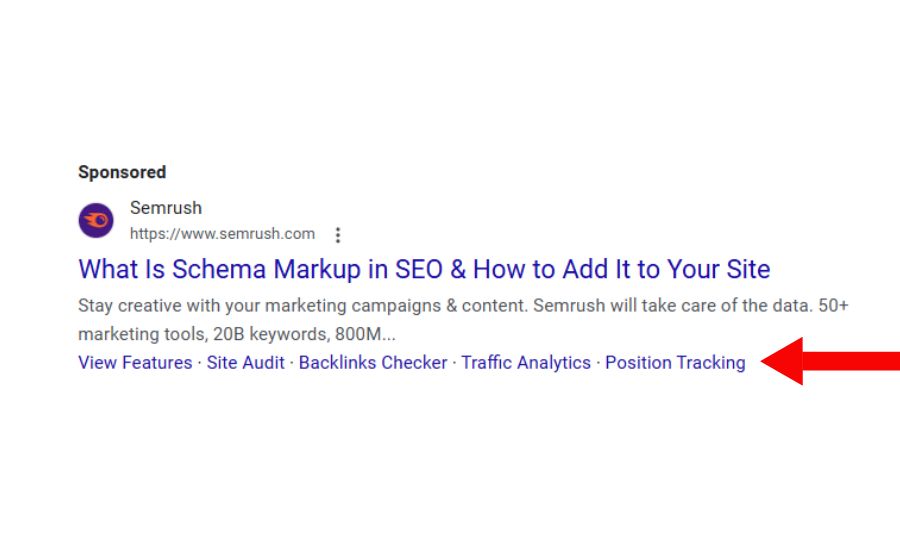
20. Use Schema if you can
Schema is the code that tells search engines what a page is about. It can help search engines understand how to rank things better so if you can, make sure your site and individual pages have schema on them. It won’t be visible to users, only search engines but it can offer users a better result as it can give several links under the meta description to further the search.
– Anurag Sharma, Kitchener Ontario Real Estate Expert
21. Build out your neighborhoods
You probably work in a couple of cities or towns, but don’t just limit your pages to those larger areas. Build out all the communities, neighborhoods, and subdivisions in that town and write about, blog about it, shoot videos on it, and become the expert. Make sure you optimize all your neighborhood pages for the main keywords and then link to the town the neighborhood is in so all these places link back to the main city. People may search for a particular neighborhood or school district or zone. Make sure you have a page on your site for them.
– Erika Rogers, St. George, Utah REALTOR
22. Think Long-Term
Organic SEO is not an overnight thing. It takes months, if not years, to gain a great ranking and authority. If you want to be at the top, go with PPC. If you want a cheaper way, go organic, but give yourself realistic expectations. If you work really hard, it could take 6 months. If you do the bare minimum, you might never see results. I remember a guy in our office who became an agent and spent a ton of money on followers, building out a site, and content, but when he didn’t see any results in 3 months, he gave up and quit the industry altogether. Slow and steady will win the race if you don’t give up.
– Chris Grant – The Grant Team, Punta Gorda REALTOR
23. Use SEO Software
If you don’t use something, you’re likely shooting in the dark on what will work. Use programs like SEM Rush, MOZ and Google Analytics and Search Console to see where your site is rankings, any errors you might have and where to bump up production. You have to know how Google is finding your site so you can run with it or pivot if necessary.
– Dave Van Nus, Portland REALTOR
24. Maximize Your Most Valuable Pages
As a Realtor, it’s essential to recognize that not every page on your website holds the same weight in driving your business forward. Pinpoint the pages that matter most to your goals—whether they’re property listings, high-traffic neighborhood guides, or landing pages geared toward capturing leads. Prioritize your SEO efforts here: enhance content quality, refine meta tags, and ensure seamless linking.
These high-value pages should create a user-friendly experience, guiding visitors smoothly toward key actions like scheduling a home tour, signing up for your market updates, or requesting a property valuation.
– Conrad Steller, Steller Group – Denver REALTORS
25. Refresh outdated content
If a page or post is doing really well don’t forget to update it if it needs it. Keeping your content fresh is crucial for SEO success. Regularly updating your existing pages ensures they stay relevant, accurate, and aligned with current best practices. This might mean refreshing blog posts with up-to-date data, enhancing keyword optimization, or adding engaging multimedia like videos and infographics.
Stale content can negatively impact your rankings and disappoint users. Make it a routine to audit and update your content to reflect the latest trends and shifts in real estate, events or activities you focus on.
– Rob Abercrombie, The Abercrombie Group – Huntsville AL REALTORS
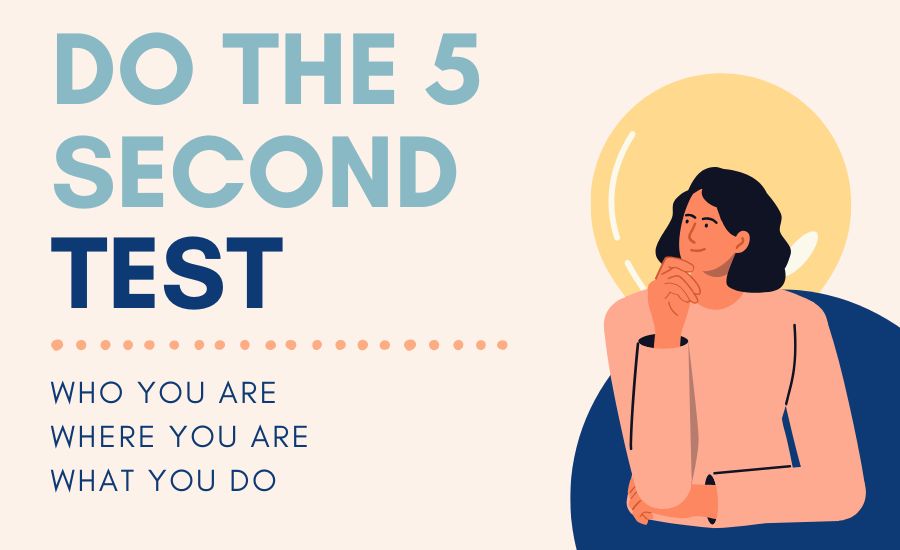
26. Do the 5 second test on your website.
Can someone tell who you are, what you do and where you do it in the first 5 seconds of looking at your website? If not, users and Google may not either. Make sure it’s clear and precise. You’re an agent in whatever city or town, and why go with you over someone else? If you’re unsure, ask someone else to give an honest answer.
– Ben Burks, The Burks Team – Tyler Texas REALTORS
27. Don’t waste too much time and money on the homepage
This took me a while to learn, and I wasted a lot of money. If your site is set up correctly, many people won’t even go to your homepage. They will find your site by searching for the city, neighborhood or blog post, which means they may never even see your homepage. I don’t understand agents that spend $10,000 on homepage design that your actual leads may never see. Spend that on marketing instead.
– Theresa Wellman, Almaden Valley CA REALTOR
28. Know what your competitors are doing
If your competitors are killing it, try to figure out what they are doing. It can be infuriating to spin your wheels for months while you competitors sail on by you. Do some research, do competitive analysis, and spy on them so you know how many more backlinks they have, how many more keywords they are tracking, and what people are really going for. It can help you devise a strategy to excel if you know how the competition is smoking you.
– Greg Smith, Boulder Home Source, Boulder CO REALTORS
29. Always go bigger and better than your competition
If your competition is beating you out, go bigger and better. Provide more information, create a better backlink strategy with your keywords and links to a page or go completely different and engage the reader better than anyone else. Remember, two houses can be priced the same but one might offer something better and will get the offer.
– Jon Sexton, Nashville Home Agents, Nashville REALTORS
30. Make sure you’re optimized for mobile.
This seems to be the one a lot of agents miss. Make sure your website is optimized for mobile. Does it have a different layout on mobile vs. desktop? Or do you have to pinch to see and read the site? If you do, it’s not mobile-friendly. Most people are searching on their devices these days so if you don’t follow up, you’ll be left behind. No one likes pinching to try and read things on a website. If your site doesn’t comply, they will pass you by AND Google won’t rank you on mobile very well either.
– Rayo Irani, Call Rayo, Oakville Ontario Real Estate
31. Do you have a CTA?
Call to Action. Does your site give great information then leave the reader hanging? Where do they go after they get the information? Away from your site or somewhere on your site to learn more? Always have more information they can click on, learn from and contact you.
Always, ALWAYS give them a way to contact you on every post or page or invite them to learn more. Put a contact form on the site; offer links to listings; provide more information in the form of buttons or images but don’t let them just read and leave.
– Rebecca White, San Francisco REALTOR
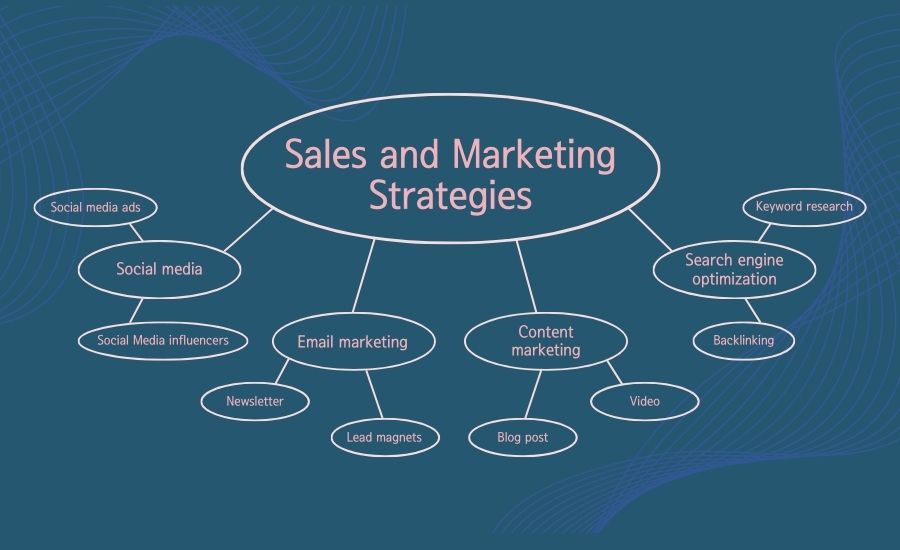
32. Backlinks are King
We used to hear that content is king, and while it is to some extent, your website cannot operate in a vacuum. You have to create a lot of links to draw people to the site and within the site. Links are literally the lifeforce network of the Internet, linking all things together in a web of information.
Some information will be better than others, and some links are more valuable, but keep striving to gain backlinks. Don’t just buy backlinks. There used to be a notion 20 years ago that you could buy 1000 links for $10. Google catches on quick and will ban or penalize any site that garners that many links so fast.
They want the natural progression of links, including linking your anchor keywords to the site, pages, and posts, naked links, meaning www.yourwebsite.com when appropriate, and links from buttons, graphics, and images.
Link from social media, other blogs, content, and news articles to your site to continue collecting those links. Don’t be too scared of a bad link unless 50% of your backlinks come from a casino or porn site. You can always disavow any toxic backlinks but continue to get backlinks from related content on a regular basis.
– Brad Erickson, Park City REALTORS and Midway, Utah REALTORS
33. Always add a link to social media posts
I have seen so many agents that have hundreds of social media posts and not one links to their website. Why? Always link to your website, internal pages, blog posts etc.. even if you are just posting a nice image. Those links matter. Whatever platform you use, make sure to utilize it to the best of it’s ability and link from it!
– Aaron Farr, The Farr Group – Spokane REALTORS
34. Link TO pages FROM high-quality pages
If you have a blog post or page that’s doing well, use that to link to other pages that are not doing so well. The same goes for off-site SEO. Link to your site from sites that have higher domain authority and rankings. Ask online newspapers for a link to your site if you write an informative article or let your great articles be picked up by reporters and insist on a link. A high-quality link from a great website can be worth 100 low-quality links.
– Jerry Hendriks, Niagara Real Estate
35. Make sure your metadata is unique.
Make sure to optimize the meta title and meta description when you build a page or post. This is the information that search engines will use to rank and display on the results page. Make sure the title uses all your main keywords but only 50-60 characters, and make sure your description crams in everything you want to say without being ridiculous on the keywords.
Keep the description to about 120 -160 characters. You can get penalized for having a title or description that is too long, and if your website sets up all pages to have the same until you change it, Duplicate meta information can penalize your site.
– Bob Jamison, Tuscana Properties – California Probate Resources
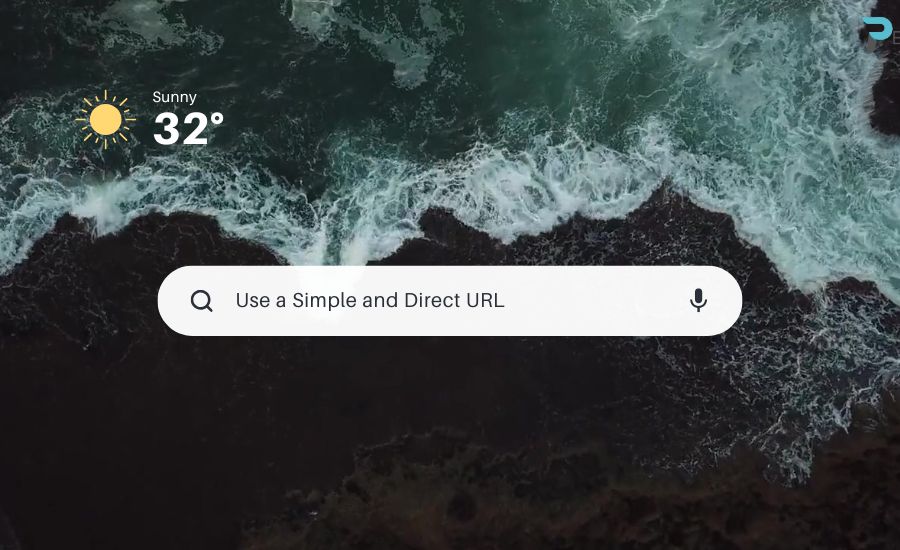
36. Don’t go nuts on the URL
Make sure when you build the page or post that your URL is simple. One of these is much easier for users and Google than the other:
https://www.burlingsquaregroup.com/wilmette/
vs
https://www.burlingsquaregroup.com/wilmette-homes-and-real-estate-listings-for-sale/
Same goes for posts. Make the blog post URL simple and to the point, factoring in your main keywords, and that’s about it.
– Jake McClure, Burling Square Group
37. Use Lists and Trigger Words
People love the subconscious trick of highlights. Offering five reasons to do this or ten tips for that work is much better than “tips for your next home inspection”. People see the number and think “list,” AKA Easy to interpret, read, and highlight. I have a general understanding of the amount of content I might want to read, and the list keeps things organized. We are very organized people so anytime you can offer key triggers like “easy”, “simple”, “perfect” etc.. with a number and list behind it, the better!
– Cathy Counti, Lee’s Summit REALTORS
38. Do an SEO Audit at least once a year
Check for broken backlinks, pay attention to your Google console and analytics and find where your site might be lagging behind so you can fix and stop penalizing the whole site. You might have great content but half the links on the blog post “Best Restaurants in Manteca CA” has 4 broken links from restaurants that have gone out of business. Update that list, those links and keep things on point, on site.
– Paul Lopez, Property Sourced, Manteca CA REALTORS
39. Stop linking to one page over and over in one post
I have seen agents that have one post linking to the same page 10+ times! Google only reads one of those so if you have a post that links to the homepage more than once, pare that down. You can have more links as long as they all go somewhere different and make sense to the article by providing more information. Don’t just cram all your keywords into one post and link them all to one page. That’s called over-optimization and Google won’t like it. People really don’t either.
–Bob and Ronna of Maryland REALTORS

40. Find a Social Media and Stick with it
I have known agents to have every single social media under the sun, and there are a lot, but use almost none of them. It’s okay to have accounts on these different places but don’t promote them or have them on your site unless you are going to use them. Some clients may track you down on one of these platforms that you don’t use and you’d never know you’re missing a lead if you don’t check that account or use it.
Find the social media that works for you AND your demographic. Millennials and Gen Z are on TikTok and X, Gen X might be on Facebook, Instagram, and Linkedin, and more Boomers are probably on Facebook. Use what works for your demographic and play to their likes and dislikes, and then make sure you respond to people when they reach out. Yes, you’ll get a lot of spam; that’s the cost of playing the SM game, but you’ll be more organized and driven if you stick to just a couple.
– Peter Boutros, New Jersey REALTORS
41. Don’t miss Local SEO
This means having a great Google My Business page. Make sure it’s verified, you have reviews and post new content on updates to keep your page fresh. Make sure your Google My Business profile is complete and up-to-date, and encourage satisfied clients to leave reviews. Local citations and backlinks from local sites also boost your visibility in local search results.
–Bey Atmaca, Bridges and Lotus REALTOR Florida
42. Get those reviews!
Reviews are HUGE! People look at reviews almost before looking at a website. If there are bad reviews, they won’t even get to your site. Make sure you have a way to garner more reviews. Send an easy link to past clients so they can quickly and easily add in a new review. Respond to reviews as well, even the negative ones so people know you are real, you don’t have a bot doing the responses, and you try to smooth out any bad actions.
People look at the reviews and the responses, so make sure you stay up to date on that. Then, promote one or two great ones each week on social media. Creating a quick “quote” post on Canva.com couldn’t be simpler. Tag the client and thank them.
– Randall Luna, Elevate Realty Group
43. Optimize for Voice
People are using Alexa and voice command a lot these days, so make sure you are optimized for voice: With the rise of smart devices, optimizing your site for voice search is becoming more important. Focus on natural language and question-based queries. For example, optimize for questions like “What are the best neighborhoods in [city]?” Answer quick questions so your page can be featured under generative search, where AI is responding to all voice and quick commands these days.
– John Bell, Southern Bell Living Mount Pleasant SC REALTORS
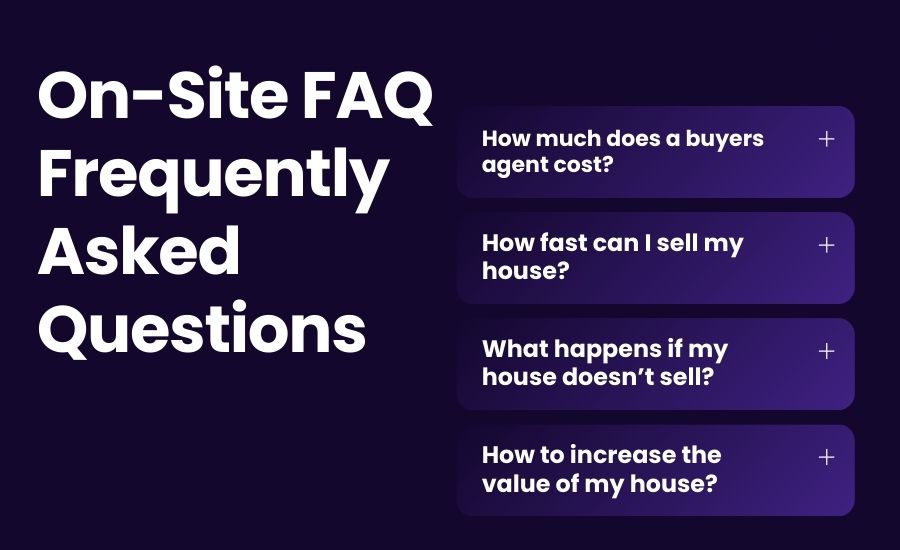
44. Use FAQ
One of the biggest and most searched-for pages is an FAQ (Frequently Asked Questions). This is where Google and AI can find easy and quick answers to a lot of questions, and if you have one page that answers them all, Google is more likely to seek out your FAQ and use it, adding to your authority and power on the search results.
– Eve Alexander, Tampa Buyers Broker
45. Use Quizzes and Engaging Articles
Ask people’s opinions on this or that; create a quiz or a checklist. Make a list of questions to ask yourself. People love being right, answering questions they know the answer to, or interacting with a website. Why do you think all those quizzes like “What Disney Princess You Are” do so well? Make up your own. “What type of home buyer are you? Find out” is a great post to get people interested and intrigued.
– Leron Grossman, Victory Real Estate Philadelphia REALTOR
46. Make sure your site is easy to navigate.
Can people easily get from one page to another without going back? Does your site have a good outline that leads people from one place to another? Once people get to a blog post, do they know what to do next, or is it all jumbled and confusing? If you don’t know, ask someone who’s never been to your site. Is it organized by niche or city?
Start with the city, then once they are on the city page, have a collection of neighborhoods, a collection of property types, etc.. and have them all interlinking to each other for easy navigation to and from pages.
Don’t throw all counties, cities, and neighborhoods into one big link mass. No one wants to sift through that. The same goes for buyer or seller information. If you specialize in sellers and listings, have a clear path for homeowners to learn, explore and contact you for listing their home without throwing in too much other clutter. Keep the site simple and organized.
– Phil Long – Fast House Sellers in Pennsylvania
47. See a Need, Find a Solution
Case Studies work great as blogs or snippets on buyer and sellers pages, maybe even area pages. Highlight how you have helped customers buy or sell homes, solve problems and created unique strategies on negotiation and getting the best deal. People love personal stories. How can you really help? It’s all about selling you!
– Tina Saporito – Ronald Christopher and Associates, Palm Desert REALTORS
48. Is your site accessible to all?
A recent update requires all sites to be ADA-compliant. This means that your website is accessible to all users. Utilize ALT Text for images so people and Google know what the image is, set up proper contrast for readability, and make sure the site is navigable with a keyword. This not only helps the end user but can boost the SEO by improving the user experience.
– Sebastian Hunter, Hunter James – Sydney Buyers Agents
49. Write Longer, Detailed Articles: Boost Your SEO and Audience Engagement
One of the most impactful SEO tactics for real estate agents is crafting longer, more detailed articles. This strategy is vital for several reasons. Firstly, comprehensive content tends to rank higher on search engines because it’s seen as more authoritative and informative. Longer articles provide an opportunity to naturally incorporate more keywords and cover topics in-depth, which can increase your visibility in search results.
Additionally, detailed articles are more likely to engage readers, keeping them on your site longer and reducing bounce rates—both of which are positive signals for SEO. They also position you as an expert in the field, building trust with your audience and encouraging them to return to your site for valuable insights. Ultimately, investing time in writing thorough, well-researched articles can significantly enhance your online presence and drive more organic traffic to your site
-Luke Skar, Madison Mortgage Guys
50. Give it Time.
It always takes time. Don’t give up so quickly. Organic SEO takes time, years even, but the harder and faster you go at it, the better it will get. If you run hard and fast out of the gate and then fizzle quick, your efforts will be for naught. Start with PPC if you need to until the site gets going, especially if you have a new domain or website.
Give it time. Push it wherever you can. Make videos and link from your YouTube channel to your website in every description. Have other agents in your firm get reviews and write blogs, link to the site and launch an aggressive social media campaign. Have a writer in your office or VA who is constantly updating market reports, writing blogs on local events and things to do, and generally being the expert in all things real estate for your area. It WILL pay off if you keep at it.
– Joe Hayden Realtor, Louisville REALTORS
I know this all seems like a full time job and it really is but if you organize yourself, take the time to set up the site correctly and then give yourself a schedule to keep the ball rolling, you’ll be raking in the leads in no time.
Personal SEO is an online marketing company that coaches, teaches, and performs monthly organic SEO for most businesses, especially real estate. Real estate is a hard SEO niche, but since 2002, Personal SEO has been helping real estate websites and agents get more traffic, leads, and better content for the ultimate in on-site and on-page SEO.
